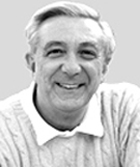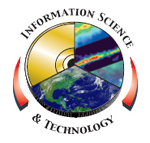
Please Note: The content on this page is not maintained after the colloquium event is completed. As such, some links may no longer be functional.
Dr. John L. Casti
The Science and Surprise of Artificial Worlds
Wednesday, October 17, 2001
Building 8 Auditorium - 3:30 PM
(Refreshments at 3:00 PM)
Goddard's Office of the Assistant Director for Information Sciences and Chief Information Officer announces the first GSFC Information Sciences and Technology (IS&T) Colloquium presentation of the Fall 2001 Series. Dr. John L. Casti, will talk about The Science and Surprise of Artificial Worlds. By their very nature, complex systems resist analysis by decomposition. It is just not possible to study, say, the human immune system or a stock market, by breaking it up into individual parts - molecules or traders - and looking at what these parts do in isolation. The very essence of the system lies in the interaction among all its parts, with the overall behavior of the system emerging from these interactions. So by throwing away the interactions, one also throws away any hope of actually understanding the workings of the system. Until very recently, there was no way of studying these sorts of systems as complete entities. But the arrival of cheap, powerful, widespread computing capability over the past decade or so has changed the situation entirely. This talk will examine how the ability to create surrogate versions of real complex systems inside our computing machines changes the way we do science, with emphasis on the idea that these "artificial worlds" play the role of laboratories for complex systems, laboratories that are completely analogous to the more familiar laboratories that have been used for centuries to understand the workings of matter. Since the ability to do controlled, repeatable experiments is a necessary precondition to the creation of a scientific theory of anything, the argument will be made that we are now in a position to think about the creation of a theory of complex systems.
Dr. John L. Casti received his Ph.D. in mathematics under Richard Bellman at the University of Southern California in 1970. He worked at the RAND Corporation in Santa Monica, CA, and served on the faculties of the University of Arizona, NYU and Princeton before becoming one of the first members of the research staff at the International Institute for Applied Systems Analysis (IIASA) in Vienna, Austria. In 1986, he left IIASA to take up a position as a Professor of Operations Research and System Theory at the Technical University of Vienna. He is also a member of the External Faculty of the Santa Fe Institute in Santa Fe, New Mexico, USA.
He has written several articles and technical textbooks on mathematical modeling. He is also the editor of the journals Applied Mathematics & Computation, and Complexity. In 1989, his work Alternate Realities: Mathematical Models of Nature and Man was awarded an Association of American Publishers prize. In 1992, he published Reality Rules. He has also written several books on science including: Paradigms Lost: Images of Man in the Mirror of Science, Searching for Certainty: What Scientists Can Know About the Future, Complexification, Five Golden Rules: Great Theories of 20th-Century Mathematics and Why They Matter, Would-Be Worlds and The Cambridge Quintet.
IS&T Colloquium Committee Host: Mike Seablom
